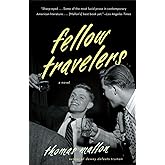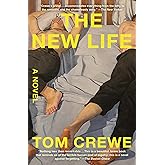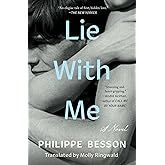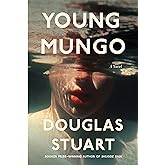
Download the free Kindle app and start reading Kindle books instantly on your smartphone, tablet, or computer - no Kindle device required.
Read instantly on your browser with Kindle for Web.
Using your mobile phone camera - scan the code below and download the Kindle app.

OK
London Triptych Paperback – April 2, 2013
"London itself is as powerful a presence here as the three gay men whose lives it absorbs." The Times Literary Supplement
"Vivid and visceral, London Triptych cuts deep to reveal the hidden layers of a secret history." Jake Arnott, author of The Long Firm
Rent boys, aristocrats, artists, and criminals populate this sweeping novel in which author Jonathan Kemp skillfully interweaves the lives and loves of three very different men in gay London across the decades.
In the 1890s, a young man named Jack apprentices as a rent boy and discovers a life of pleasure and excess that leads to new friendships, most notably with the soon-to-be-infamous Oscar Wilde. A century later in 1998, David tells his own tale of unashamed decadence from prison, recalling life as a young man arriving in the city in the mid-'80s just as the scourge of AIDS hit. Where their paths cross, in the politically sensitive 1950s, when gay men were the target of police and politicians alike, the artist Colin tentatively explores his sexuality while working on his painting "London Triptych."
Moodily atmospheric and rich with history, London Triptych is a sexy, resplendent portrait of the politics and pleasures of queer life in one of the world's most fascinating cities.
Jonathan Kemp lives in London, where he currently teaches creative writing at Birkbeck College. London Triptych, his first novel, was published in the United Kingdom in 2010 and won the Authors' Club Best First Novel Award.
- Print length256 pages
- LanguageEnglish
- PublisherArsenal Pulp Press
- Publication dateApril 2, 2013
- Dimensions5.4 x 0.8 x 7.9 inches
- ISBN-10155152502X
- ISBN-13978-1551525020
"Layla" by Colleen Hoover for $7.19
From #1 New York Times bestselling author Colleen Hoover comes a novel that explores life after tragedy and the enduring spirit of love. | Learn more
Similar items that may deliver to you quickly
Editorial Reviews
Review
"Skillfully woven into the characters’ development are atmospheric descriptions of the travails of gay life―witch hunts, police harassment, trials ... Snappy dialogue and unique perspectives make London Triptych a compelling, easy read about politics and pleasure in London." ―EDGE
"Elegantly written, this novel, first published in the UK and winner of the Authors’ Club Best First Novel Award, is for readers who appreciate period detail and historical context about the gay male experience." ―Library Journal
"Prostitution, prison, and the police are recurring themes in Jonathan Kemp’s ambitious and intricate first novel ... a fine and finally elegiac book." ―Towleroad
"Skillfully woven into the characters’ development are atmospheric descriptions of the travails of gay lifewitch hunts, police harassment, trials ... Snappy dialogue and unique perspectives make London Triptych a compelling, easy read about politics and pleasure in London." EDGE
"Elegantly written, this novel, first published in the UK and winner of the Authors’ Club Best First Novel Award, is for readers who appreciate period detail and historical context about the gay male experience." Library Journal
"Prostitution, prison, and the police are recurring themes in Jonathan Kemp’s ambitious and intricate first novel ... a fine and finally elegiac book." Towleroad
About the Author
Product details
- Publisher : Arsenal Pulp Press; Reprint edition (April 2, 2013)
- Language : English
- Paperback : 256 pages
- ISBN-10 : 155152502X
- ISBN-13 : 978-1551525020
- Item Weight : 12 ounces
- Dimensions : 5.4 x 0.8 x 7.9 inches
- Best Sellers Rank: #1,308,292 in Books (See Top 100 in Books)
- #478 in LGBTQ+ Historical Fiction (Books)
- #1,130 in LGBTQ+ Literary Fiction (Books)
- #57,388 in Literary Fiction (Books)
- Customer Reviews:
About the author

Discover more of the author’s books, see similar authors, read author blogs and more
Customer reviews
Customer Reviews, including Product Star Ratings help customers to learn more about the product and decide whether it is the right product for them.
To calculate the overall star rating and percentage breakdown by star, we don’t use a simple average. Instead, our system considers things like how recent a review is and if the reviewer bought the item on Amazon. It also analyzed reviews to verify trustworthiness.
Learn more how customers reviews work on Amazon-
Top reviews
Top reviews from the United States
There was a problem filtering reviews right now. Please try again later.
These three narratives are connected in many different ways. There is the element of sex for hire in all three of them, the police have a presence, the graphic sex-- some of it kinky, some of it aided by drugs, much of it a bit crowded with the number of players-- and finally the aching theme interwoven in all three, that of love that is not reciprocated. Finally, Mr. Kemp connects the three novels in a way that may surprise you. There is passage after passage of language that rises to the level of poetry. David on founding a lump of lost hash: "Yes, I tested it on my teeth like a jeweller. Yes. You ran over and kissed me, leaving diamonds in my mouth." David on making love in a cemetery with the second-person recipient of his prose: "And the sky was made of amethyst, and all the stars were just like little fish. . . When you pulled away, silver webs appeared between us, which dissolved as soon as they were spun. It was suddenly as bright as day and a shoal of stars swam off into this vast sea of light, leaving trails of bubbles that rose and burst. My hands passed right through you. We walked through each other's bodies like walking through corridors, that led to other corridors and other doors." Colin on his model Gore: "He isn't as dim as he first appeared, just inarticulate, incapable of expressing the complexity of what he feels. How do I know? The rapidity with which his moods change, and the colour of his eyes with them; the world-weariness worn like a garment that ill fits the statuesque demeanour. His intelligence is of a different order--an intelligence of the body, if you will. . . He has a scar on his back, just underneath the right shoulder blade. . . His body tells the story of his life."
Finally it is refreshing-- at least for me-- to read a novel that is not about politically correct gay men, i.e., the lawyer and architect, who just got married with a ceremony on the Marginal Way in Ogunquit, Maine, who have just adopted a child from South Korea and are your best next door neighbors. (In a recent interview Edmund White tells of a distraught student of his who has just broken up with his boy friend, lamenting that this was the man he expected to have children with. To Mr. White and those of us of his generation, this concept is as alien as the Great Wall of China.)
Mr. Kemp in "Afterward: A Government of Whores" writes in several pages of what he is trying to do in this really fine novel connecting all the dots in a narrative that certainly should not be read until you finish the book.
The best compliment I can give this haunting novel is that I would reread it.
What this book has is heart. You feel for all three of these guys as they make it through their portions of London history -- sometimes suffering, sometimes in love, and often making some great jokes about life. There's a good deal of well-thought-out history here, along with a nice braiding of the three time periods.
A light read and a lovely one, too
Jack’s search for pleasure and profit lead him into the shabby and exuberant demimonde of queer life in 1890s’ London, where he eventually meets an aging Oscar Wilde. Lonely and still deeply naïve at fifty-four, Colin lives a severely buttoned-up existence, in constant fear of being found out, only to be coaxed out of his shell by, Gregory (Gore) a beautiful young model. Growing up in the 1980s, David escapes the stifling conformity of small-town life to seek fortune and adventure in the city as a prostitute and porn actor. The three stories are neatly tied together by Gore, who, in the 1950s is acquainted with Jack, a man by then in his seventies. Gore goes on to become one of young David’s clients in the 1990s.)
The stories may be as striking for their similarities as their differences: each of these characters makes the ultimate mistake of falling in love where love is forbidden or simply foolish, inevitably leading to betrayal and desolation. There are no happy endings, but only life continuing for better or for worse—fiction is seldom more real than this.
As readers have come to expect, Kemp’s writing is gorgeous, clear and confident with a rich vein of metaphor, often approaching the poetic, yet never becoming overly effusive or strained. Seldom has a debut novel been so well organized or cleverly thought out with such near-perfect economy of expression, eschewing the inessential so as to evoke a world like no other.
Wholeheartedly recommended!
Top reviews from other countries
The historical parts were informative .
Alle drei Geschichten verbinden die Motive Prostitution (Jack, David und sein Freund, das Modell des Malers Colin), Liebe unter denkbar ungünstigen Bedingungen und schließlich Betrug dieser Liebe. Wirklich zusammen gehalten werden die einzelnen Erzählstränge jedoch nicht. Es ist deutlich, was Kemp im Nachwort beschreibt: das Buch begann mit einer Kurzgeschichte, der von Jack im Londoner viktorianischen Rotlichtmilieu. Erst später, bei der Idee zu einem Buch, kamen die Geschichten von Colin und David hinzu. Jacks Geschichte bleibt bei weitem die interessanteste (und, glaube ich, auch am besten recherchierte). Colins Leidensweg ist an manchen Stellen berührend,, aber hätte mehr ausgebaut werden können. Davids Bericht hat mich so wenig angesprochen, dass ich immer froh war, wenn die Perspektive wieder zu einer der anderen Personen wechselte, denn hier gibt es, wenn man sich ein bisschen mit LGBT - Literatur auskennt, wirklich nichts Neues zu entdecken.
Kemp möchte mit diesem Erstlingswerk ein bisschen zu viel. Das Ganze wirkt in jeder Hinsicht überladen. Er scheint beweisen zu wollen, wie versiert er mit der Sprache und dem Erzählen umgehen kann. Als Ergebnis badet er sich und den Leser in wortgewaltigen philosophischen und sich oft wiederholenden Reflektionen, die, weil sie den jeweiligen Ich-Erzählern in den Mund gelegt werden, die Personen nicht authentisch wirken lassen. Zudem wird jede einzelne Geschichte mit den Lebensgeschichten anderer Figuren überfrachtet, die den Weg der Protagonisten kreuzen. Angereichert wird Kemps Roman durch die Auflistung so ziemlich aller sexuellen Techniken, die ihm eben einfallen, als wolle er eine Enzyklopädie darüber schreiben.
Insgesamt aufgrund der historischen Perspektive interessant zu lesen, aber reicht nicht an die Bücher anderer, von mir sehr geschätzter Autoren (Andrew Holleran, Christopher Davis oder Trebor Healey) heran.
Then it moves on to the 1950's where 54 year old repressed, gay, artist Colin Read leans towards his urges in drawing a male model, whore and part time anything that goes, Gregory or `Gore to his friends. Gore opens the door to sexual liberation just enough for Colin to fall through with beguiling yet tragic results.
Then we are brought up to date with David a hedonistic, male whore who embraces the drug fuelled excesses of the 1990's and all the ups and downs that it brings. We have sex, drugs and well art. It is all loosely tied together through two of the central characters and a web of connections through a shared need for gay sex and a moth to flame relationship with Londons more `theatrical' night spots.
It is told in episodic form that pulls the whole thing together and has a rhythm that carries you along to the ultimate end that face them all.
I ruddy loved this, and found it hard to put down, one of those where I was sad it was finished as I wanted more, and that is the best way to leave your audience. For gay fiction this is a must have and I can not recommend highly enough, lets hope Mr Kemp does a follow up soon.
Perhaps there are more ways to become involved and more drugs to add into the mix of things but the transactions remain the same.
A young man who understands the charm that all youth holds for all men who have moved past it, sells access to his body and to his genitals, to his attentiveness and to his time. An older man, or even just another man, might, for a host of different reasons find himsellf becoming involved in this kind of transaction.
For both it will hold particular meanings and it would be wrong to assume that either side to the exchange can remain emtionally detached.
Of course the charm of even tho most spectacularly handsome young men fattens and fades or in some way withers and they too end up trying to find new ways to experience their sexual lives . . . when it can no longer be so readily organised by market mechanisms to their financial advantage.
In the great mix of commercial sexual encounters, as indeed with all sexual encounters, either side may be the more enduring man, the one whose passions and insights are longest remembered, or even treasured, by history.
It's all quite complicated really and food for serious thought. Jonathon Kemp is such a good writer that he is able to wend a path through all of this and more, and examine the interplays and the possible outcomes in men's lives from the late nineteenth to the late twentieth century. And he looks at it from the twenty-first century with the skillful eye of a well researched, well informed and intellectually honest perspective, as someone clever enough to see the beauty and the loss in all sexual encounters . . . or perhaps that last bit is just me reading too far into his story.
This is not a collection of erotic tales but at times it is quite erotic, touching, moving, sexy. It also has twists and turns that are not entirely what you might expect, particularly as Oscar Wilde is a part of the first of the three inerlaced stories . . . and we all know at least how some of that worked out . . . for Oscar.
Prepare to travel in time with one of the group of boys who held Oscar in their thrawl. And prepare to know that each of the men in this story are the men, young and old, who pass us on the street, men we think we know from their public lives, and men we see selling their bodies and their XVWE charms in the back pages of an increasing number of expensive glossy magazines. They could be you, they could be me, they could be your husband or your son. They could number among the loves of your life . . . and this is a beautifully written literary moment where some of those possibilities are weaved together in a way that helps us better understand that we mostly do what we can to embrace our passions as best we can, and how easily we can become, and likely are, an indelible part of someone else's life story.









